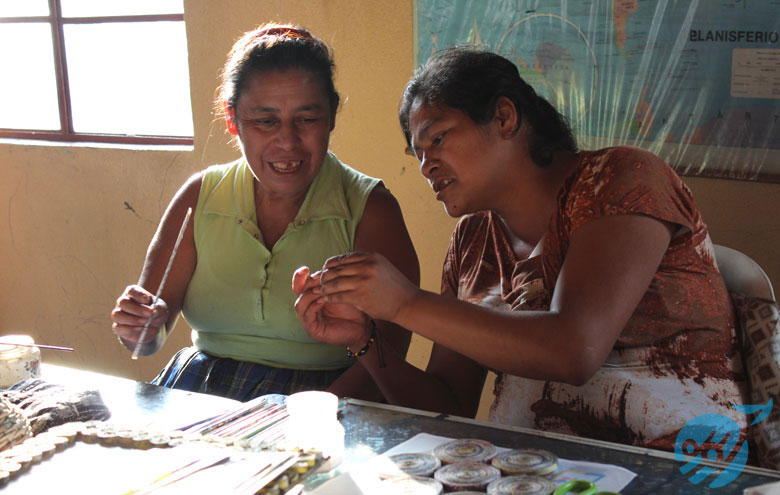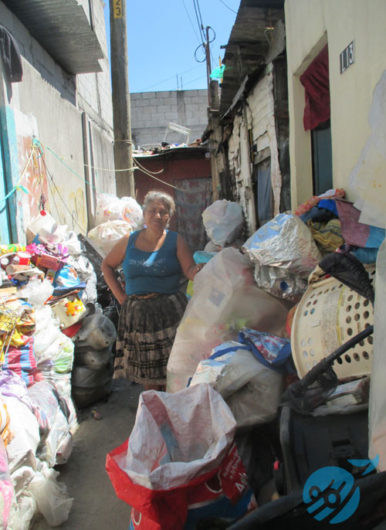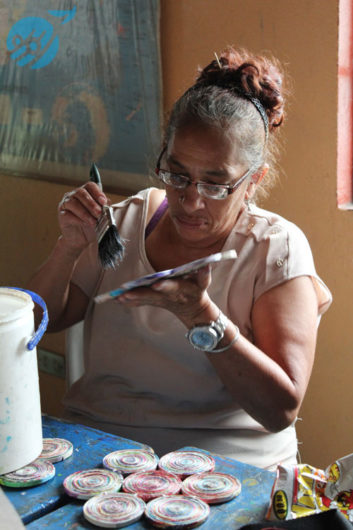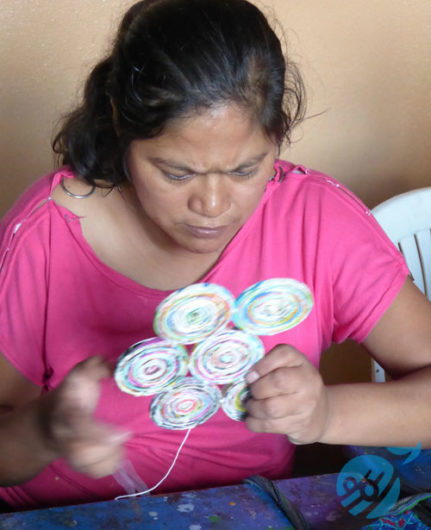A Sustainable Job That Also Sustains Life

In May 2019, ATD Fourth World highlighted the informal, often unrecognized, work of people living in poverty. Because these people are not part of the traditional labor force, labor advocacy groups often fail to represent them. Yet people living in poverty frequently have job expertise that goes unnoticed. With their capabilities, they can earn money and develop support networks.
For most families and for others living in poverty worldwide, work means not earning a living wage. It means exploitation, no pay, difficult or dangerous conditions and forced layoffs. The suffering caused by lack of resources and lack of means is intensified by degrading and humiliating treatment. People experience disrespect and feelings of futility that prevent them from participating fully in their communities.
More than ten years ago, ATD Fourth World created the “Working and Learning Together” (WLT) program to address this problem in France, Madagascar and Guatemala. The program targets people who are cut off from the labor force or working in the informal sector. WLT provides supportive training and helps participants establish social bonds.
The following are reflections by workers and members of WLT Guatemala. They talk about the importance of having a job and how work creates conditions that sustain life.
Work is more than money: “Without work, we don’t grow”
“Work with dignity lets us support our families, our homes, our children. It provides shoes, health and education. Work is very important for Fourth World families and for me.”
“But work also gives sustenance; it lets us grow. Without work, we don’t grow. We don’t advance, and we have many setbacks in life. Work gives us… a sustainable life.”
The experience of “a job that kills”
Families living in poverty work very hard. They endure great hardships, humiliation and harsh conditions because they have to work to support their loved ones.
“I’ve seen people set out cardboard boxes or sheets of plastic on the street to sell things to support their families. My neighbor, Doña Silvia, works at a glass recycling plant. She breaks up the glass, puts it into sacks and loads the sacks on the truck. It’s very hard work. When she comes home at night, I see her in pain. The broken glass has cut her hands. Her cheeks are full of splinters from breaking the glass. I see her husband taking out all those splinters.”
“I see how difficult it is for Fourth World families and for my neighbors.”
Exploitation and hard labor
“There are families who have spent their whole lives washing other people’s clothes or working in small eateries. Sometimes our daughters take jobs in the same places where we worked for years for very unjust wages. Our children follow the same life we had. They have the same jobs. Like we did, they sacrifice their youth, their hands and their strength because they have to work. They don’t have other opportunities.”
“A neighbor’s children say she comes home from the factory dead tired every day. She says the workers are really exploited and have to meet very harsh production quotas. If they don’t meet the quotas, their pay is docked at the end of the month. There is a lot of exploitation, but the job lets you support your family.”
“Lots of places exploit people. You have to work overtime to keep your job or else you get fired.”
“Families have to adapt to hard labor in order to earn a living.”
“The work was really hard for me. But today I am also proud because my daughters have achieved their dreams. They have overcome so much and done just beautifully. Having an education made it possible for them to get a job. They don’t earn a big salary. But at least the job doesn’t kill them, as I killed myself working.”
Working and Learning Together
“At Working and Learning, our goal is to get ahead, right now by manufacturing key chains, baskets and other things. We make handcrafts with recycled paper. Also, we teach other people that you can make things that are pretty and useful with what you you can’t use and might otherwise throw away.”
“Working and Learning Together is a place where we work and learn. It’s a place where we are not exploited, where we experience and share moments of joy. We get to take coffee and lunch breaks, not just bread and coffee. In other jobs, you only have 15 minutes to eat and no time to chat. WLT doesn’t control us like that.”
“At WLT, we ourselves have to be responsible. We aren’t monitored constantly, but we have tasks to accomplish. There isn’t a boss telling us we need to clean up. But we know we have to do it.”
Learning self-confidence
“I have learned a lot at WLT, especially to value myself as a person and as a woman. Also, I put more effort into what I do. I never believed I would be able to do all I can do today! Now I see that we are really useful people. Not having a formal education doesn’t mean that we are not worthy as people. In other places, there were people who did not appreciate my work. To them, I was nothing and what I did was trash. So all I did was quit, give up, and not value my work.”
“Here [at WLT], we are encouraged more to do things. It’s a way of saying that we are useful as people. We teach each other and do the things together.”
“We have achieved something very simple and valuable—to grow as people and as a group, and to love ourselves.”
Gaining Independence
“For me, learning more handcrafts—learning more in general—is motivating. I know I won’t be young forever. So I have to plan for the day when I won’t be strong enough to do hard labor. Since I don’t have an education, I’ll have trouble finding work, but I’m going to support myself.”
“After 10 years, we have managed to support ourselves, to grow as people and to value each other as fellow workers in the group. We have also been able to earn money to support our families.”
“Something very important that I learned at WLT is solidarity. That’s a hard word to say! But this isn’t the only place I practice solidarity. I also use it outside the program. That’s something I didn’t do before, but now I do it, and it feels good.”
One of the fundamental activities of ATD Fourth World is promoting alternative work experiences. These allow people affected by extreme poverty to generate new economic resources and reestablish social engagement. ATD also makes an effort to understand the creativity and resilience that families in the direst poverty develop to keep their families alive. It is important to learn from these families what a tremendous effort it takes to achieve life-sustaining work. This is also a path to a sustainable future.




